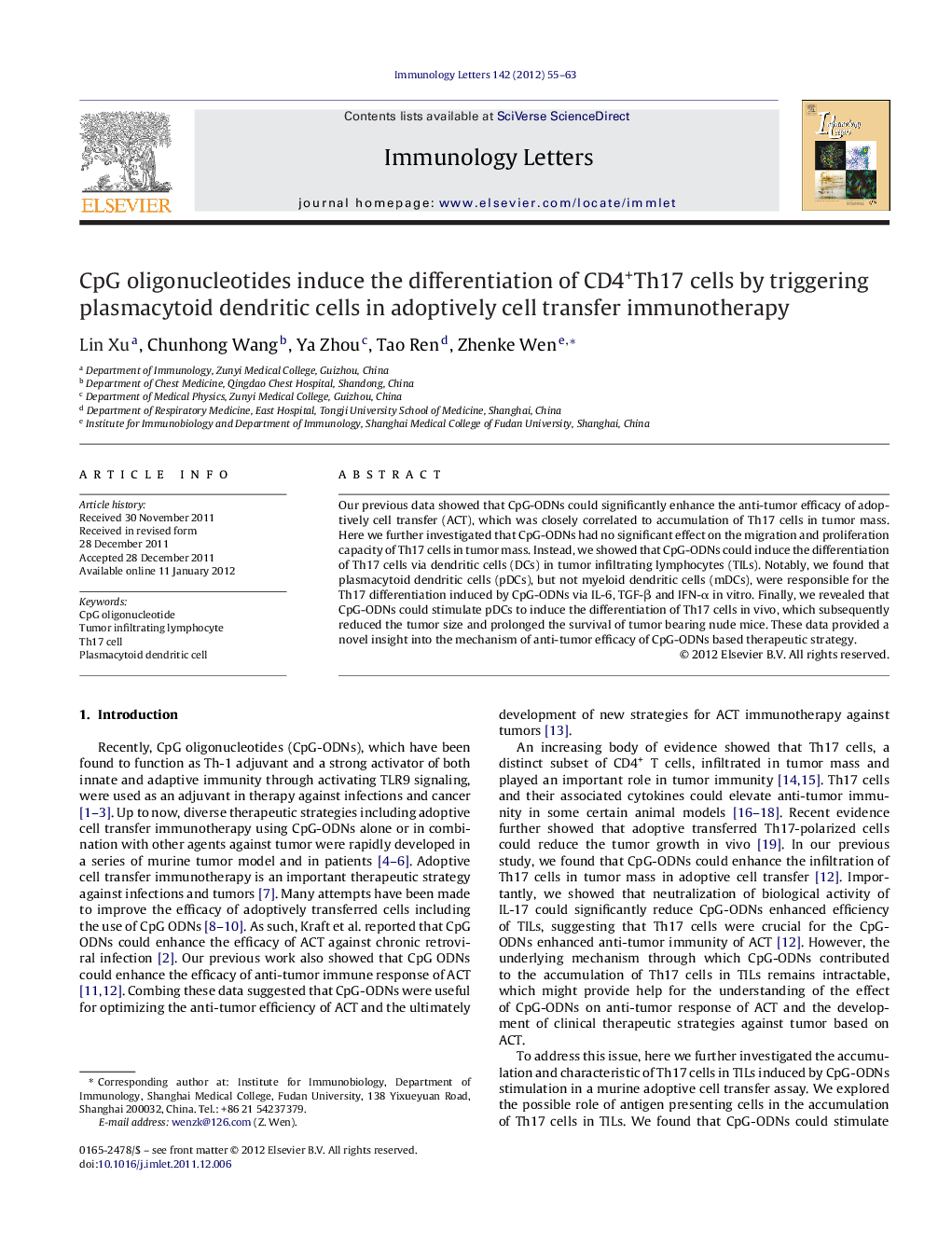| Article ID | Journal | Published Year | Pages | File Type |
|---|---|---|---|---|
| 3355669 | Immunology Letters | 2012 | 9 Pages |
Our previous data showed that CpG-ODNs could significantly enhance the anti-tumor efficacy of adoptively cell transfer (ACT), which was closely correlated to accumulation of Th17 cells in tumor mass. Here we further investigated that CpG-ODNs had no significant effect on the migration and proliferation capacity of Th17 cells in tumor mass. Instead, we showed that CpG-ODNs could induce the differentiation of Th17 cells via dendritic cells (DCs) in tumor infiltrating lymphocytes (TILs). Notably, we found that plasmacytoid dendritic cells (pDCs), but not myeloid dendritic cells (mDCs), were responsible for the Th17 differentiation induced by CpG-ODNs via IL-6, TGF-β and IFN-α in vitro. Finally, we revealed that CpG-ODNs could stimulate pDCs to induce the differentiation of Th17 cells in vivo, which subsequently reduced the tumor size and prolonged the survival of tumor bearing nude mice. These data provided a novel insight into the mechanism of anti-tumor efficacy of CpG-ODNs based therapeutic strategy.
► CpG-ODNs induced the differentiation of Th17 cells via DCs in TILs. ► pDCs were responsible for the Th17 differentiation induced by CpG-ODNs. ► CpG-ODNs could stimulate pDCs to induce the differentiation of Th17 cells in vivo.
